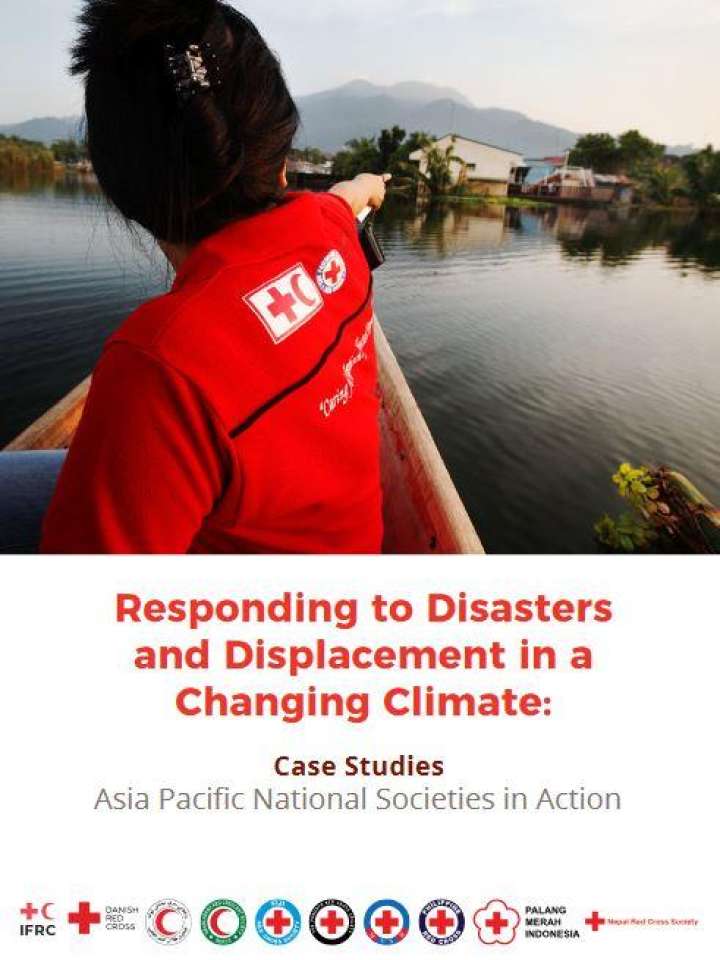Responding to disasters and displacement in a changing climate: Case studies Asia Pacific National Societies in action
The report analyses climate-related displacement as well as a post-earthquake response across eight countries, examining response by National Red Cross and Red Crescent Societies in coordination with governments and other agencies. The research finds that displacement disproportionately affects already marginalised and at-risk groups including women, children, the elderly, people with a disability, migrants and refugees. When disasters destroy villages and entire neighbourhoods, the report shows that people also face long-term housing, land and property issues. Women and children are also confronted with increased risks of violence due to climate-related displacement.
Some of the key recommendations made in this report are:
- Investment in and focus on local actors and local responders is vital to support faster, more efficient, and more relevant support to affected communities.
- Meaningful community engagement and accountability (CEA) can and should contribute to a nuanced and longer-term perspective on displacement.
- A protection, gender and inclusion (PGI)-informed approach and response must be at the forefront of any humanitarian and longer-term recovery support.
- Strengthening national and branch level internal systems and capabilities to assess the humanitarian needs and capacities of affected people (including those most at risk) puts National Societies in a strong position to scale-up their support beyond emergency response operations.
- Community-led assessments are at the core of developing anticipatory humanitarian action.
Explore further
